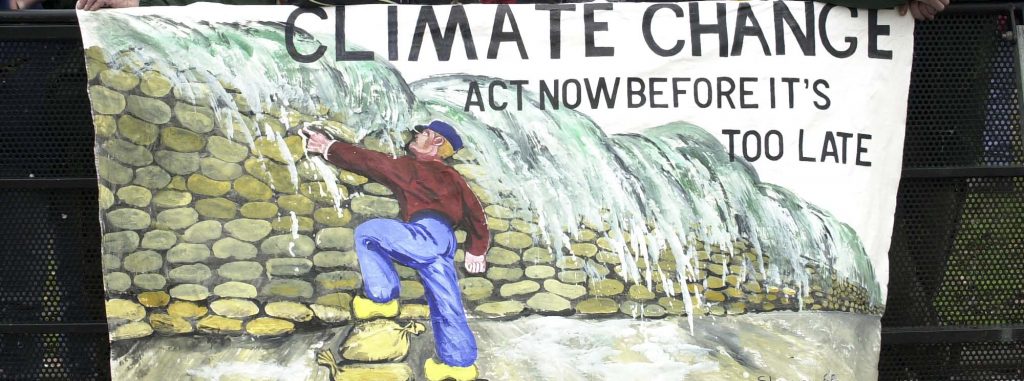BALI INDONESIA, 7 December, 2007 – Informal trade talks scheduled to take place in Bali this weekend could seriously threaten the opportunity for a just and sustainable way forward on tackling climate change, Friends of the Earth International warned on the eve of the talks (Friday).
The ministerial meeting, scheduled to take place in the middle of the UN climate talks in Bali has been convened by the Indonesian government. Trade ministers from 30 countries, including the US, EU, Brazil, India and China, will discuss cross-cutting trade-related climate issues such as the liberalisation of “climate-friendly” technologies, and “mutual supportiveness” between the WTO and the UNFCCC regimes.
Friends of the Earth International Chair Meena Raman said:
“This informal trade ministerial taking place behind closed doors on the sidelines of climate talks is deeply worrying. What the climate negotiations need is trust and transparency. The World Trade Organisation’s anti-poor, anti-environment agenda must be kept out of the UN climate process “
The United States and European Union have launched a joint push for freer trade in environmental goods and services through the World Trade Organisation (WTO), ahead of the talks, including climate-friendly technologies. But this initiative stands to benefit business interests especially in rich countries rather than people affected by climate change in the developing world.
Meena Raman added:
“Technology transfer is not about reducing trade barriers. If the EU and US were serious about helping developing countries tackle climate change, they should be radically reducing their own emissions and living to up their obligations by paying their climate debts.? This includes the costs of adaptation and mitigation, including technology transfer and forest conservation.Instead, we see them pushing intellectual property rights onto the poor that block the transfer of desperately needed environmental technology.”
Friends of the Earth International highlighted the damaging impact of trade liberalisation on people, communities and the natural environment, affecting people’s health, their well-being and their survival. Indigenous Peoples and forest-dwelling communities have seen an increase in deforestation as a result of growing free trade in agriculture and forest products. Deforestation is estimated to be responsible for some 20 percent of global greenhouse gas emissions.
WALHI/ Friends of the Earth Indonesia Deputy Director Farah Sofa said:
“The principle of ‘free trade’ should be not applied to environmental and climate matters. Climate negotiators should have the right to keep all options open to deal with the threat of climate change and trade rules must not stand in the way of our aim to achieve sustainable societies. We demand a radical shift in the dominant, unsustainable production and consumption patterns.”
Friends of the Earth International said that the liberalisation of energy markets, through multilateral or bilateral negotiations to deregulate the energy sector is increasing our dependency on fossil fuels and delaying efforts to move towards low-carbon economies.
Friends of the Earth Europe Trade Campaigner Charly Poppe said:
“The European Union’s trade and “competitiveness” agenda, known as “Global Europe”, completely disregards the need to tackle climate change. It is only concerned about grabbing developing countries’ natural resources, in particular energy resources, and de-regulating economies in the interests of corporate lobbyists. Such an agenda is a blatant contradiction to the EU’s own climate commitments, but it is also a serious threat to the success of the climate talks in Bali.”
***







